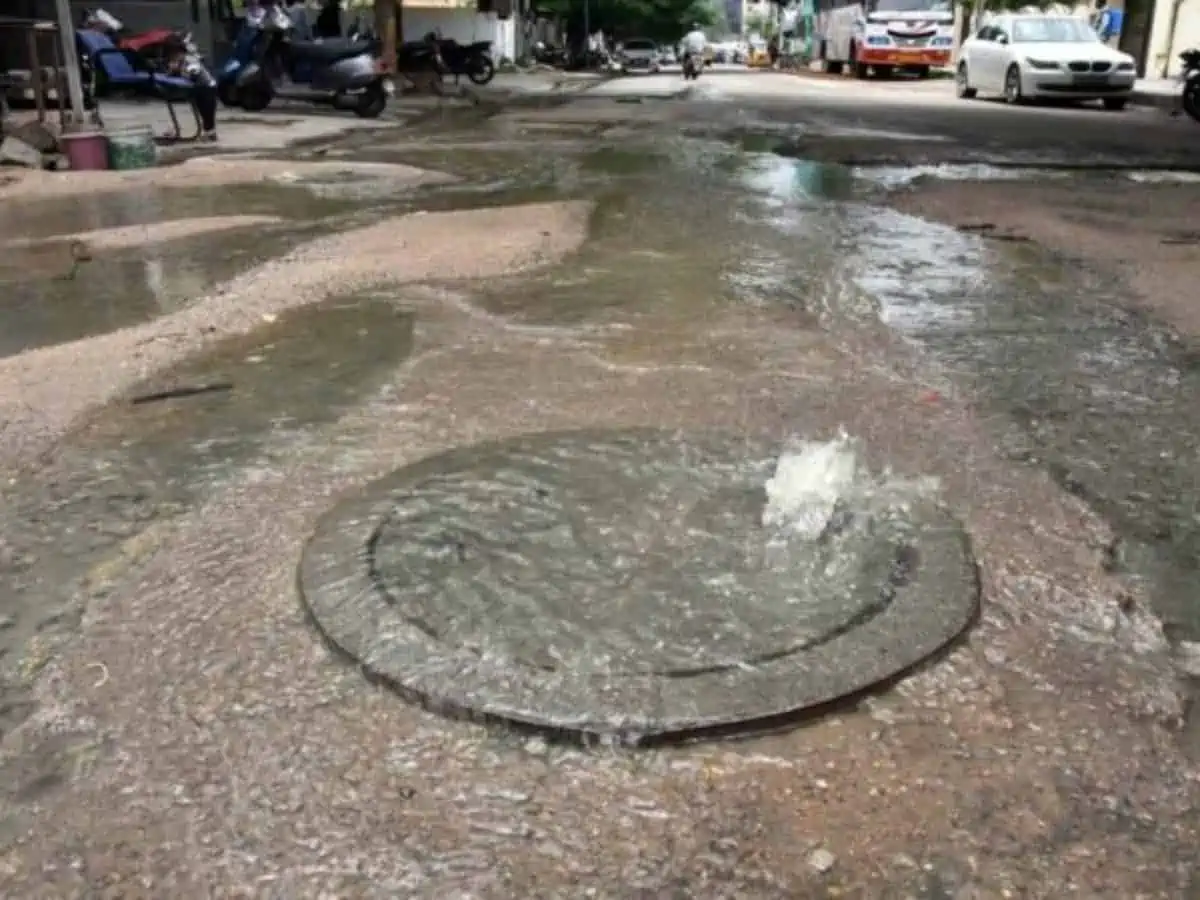Hyderabad is facing an urgent yet preventable civic challenge—overflowing manholes caused by irresponsible waste disposal and infrastructure neglect.
The Hyderabad Metropolitan Water Supply and Sewerage Board (HMWSSB) has sounded the alarm, urging citizens and commercial establishments to urgently adopt corrective measures before the problem spirals into a public health crisis. Despite frequent special sanitation drives by the Water Board, the menace of choked manholes remains unabated. The core issue, officials say, lies not in technical inefficiencies but in deep-rooted public apathy. Over the past few months, HMWSSB teams have removed alarming quantities of solid waste from sewer pipelines—items ranging from plastic bottles and bedsheets to mattresses and pillows, which have no place in an urban sanitation system.
The situation is especially dire in areas with dense commercial activity. Hotels, bakeries, restaurants, and multi-storey apartment complexes have been found bypassing regulatory requirements by connecting their internal drainage systems directly to the city’s main sewer lines—often without installing mandatory silt chambers. These chambers are designed to trap solid and food waste before they reach the sewer network, ensuring smooth wastewater flow and preventing blockages. Ashok Reddy, Managing Director of HMWSSB, emphasised that the city’s sanitation infrastructure cannot function efficiently without proactive citizen engagement. “It is no longer a matter of maintenance but of collective responsibility. Without silt chambers and responsible waste disposal, we’re looking at recurring overflows, public health risks, and long-term environmental degradation,” he said.
The HMWSSB has now issued a citywide appeal to all property owners, especially those operating large residential or commercial premises, to install silt chambers at their connection points. This, officials believe, is the most effective way to intercept solid debris before it enters the sewage system. While the Board continues desilting efforts, they have also warned of strict penalties for those found illegally dumping waste into the sewer network. Urban planners warn that this issue, if left unaddressed, could jeopardise Hyderabad’s ambitions of sustainable urban growth. Frequent sewage overflows not only strain civic infrastructure but also contaminate stormwater drains, leading to widespread pollution, especially during monsoon seasons. This can worsen the city’s water quality and intensify vector-borne diseases like dengue and malaria.
The manhole crisis also intersects with the larger vision of climate-resilient cities. Modern waste management systems must function as an integrated part of climate action plans, promoting decentralised and inclusive infrastructure development. By encouraging silt chamber installations and penalising violators, the city takes a modest but essential step toward a more accountable and sustainable future. While the technical fixes are straightforward, the broader challenge lies in fostering a culture of civic responsibility. Until every stakeholder—residents, businesses, and government agencies—works in tandem, Hyderabad’s aspiration to become a model urban centre will remain hamstrung by its own neglect.
Also Read: India Sees 1562 New Construction Projects in April



